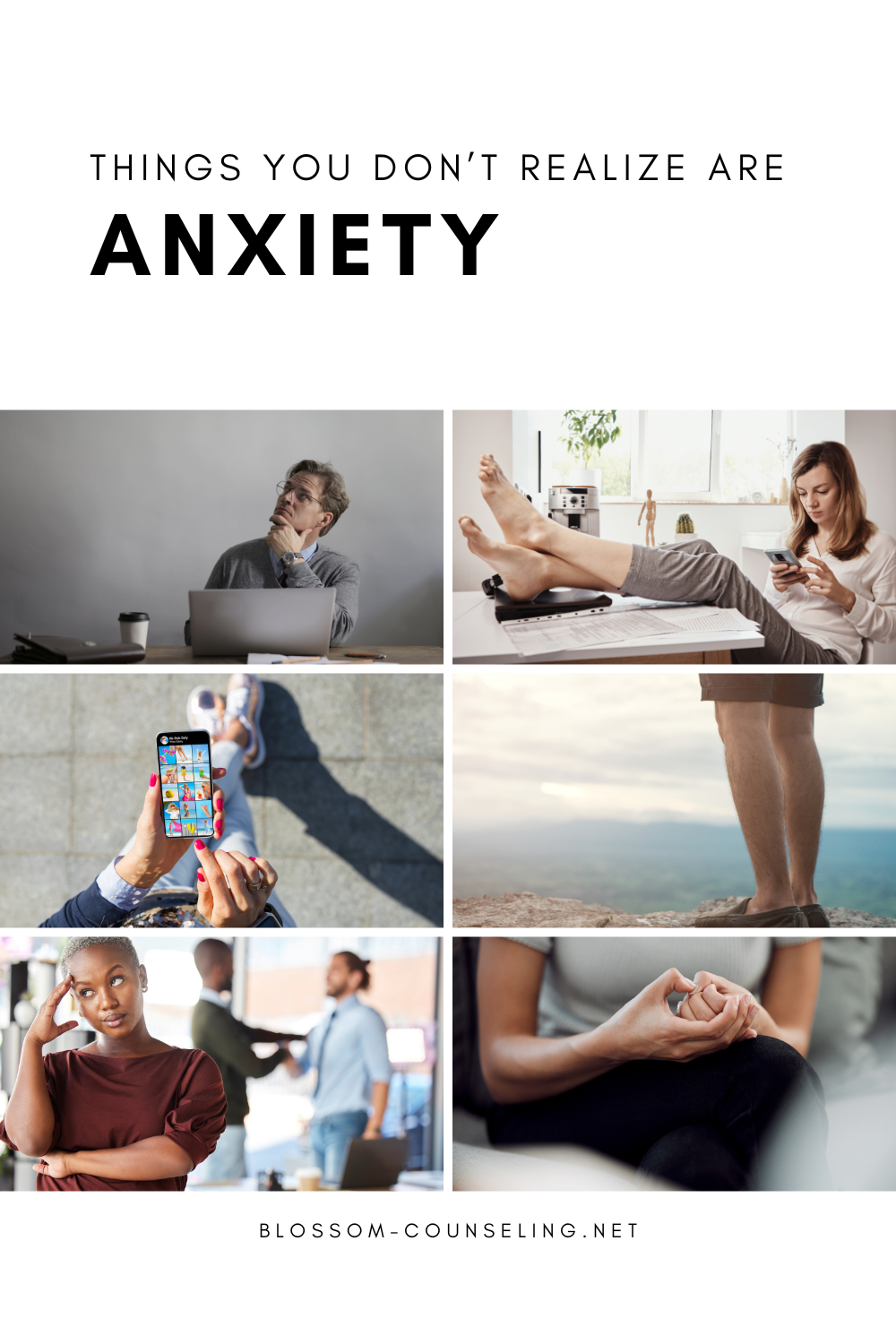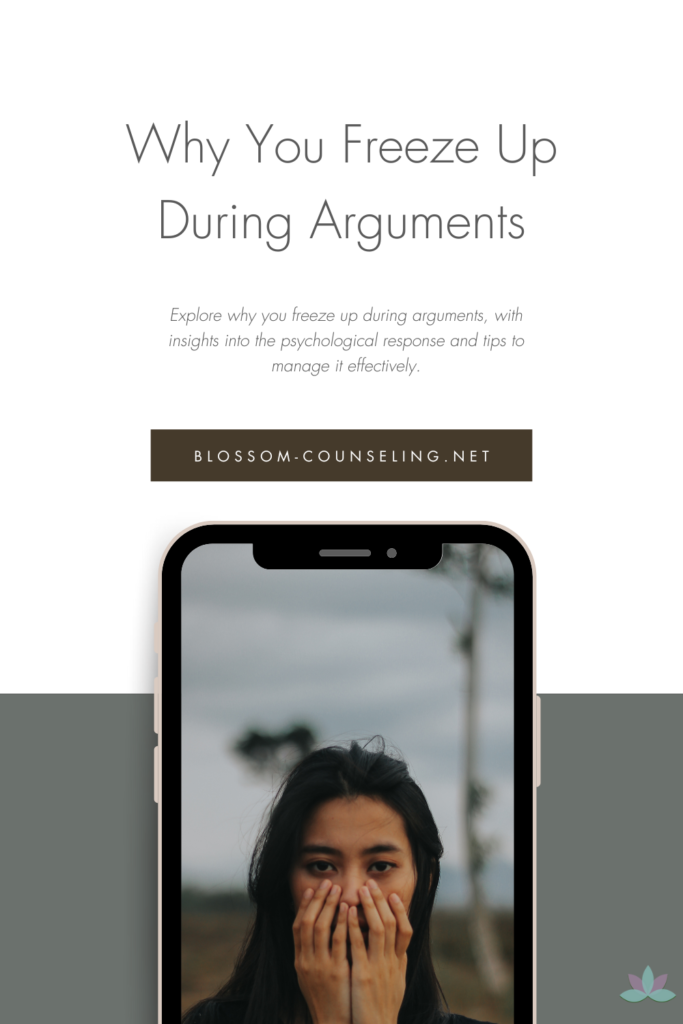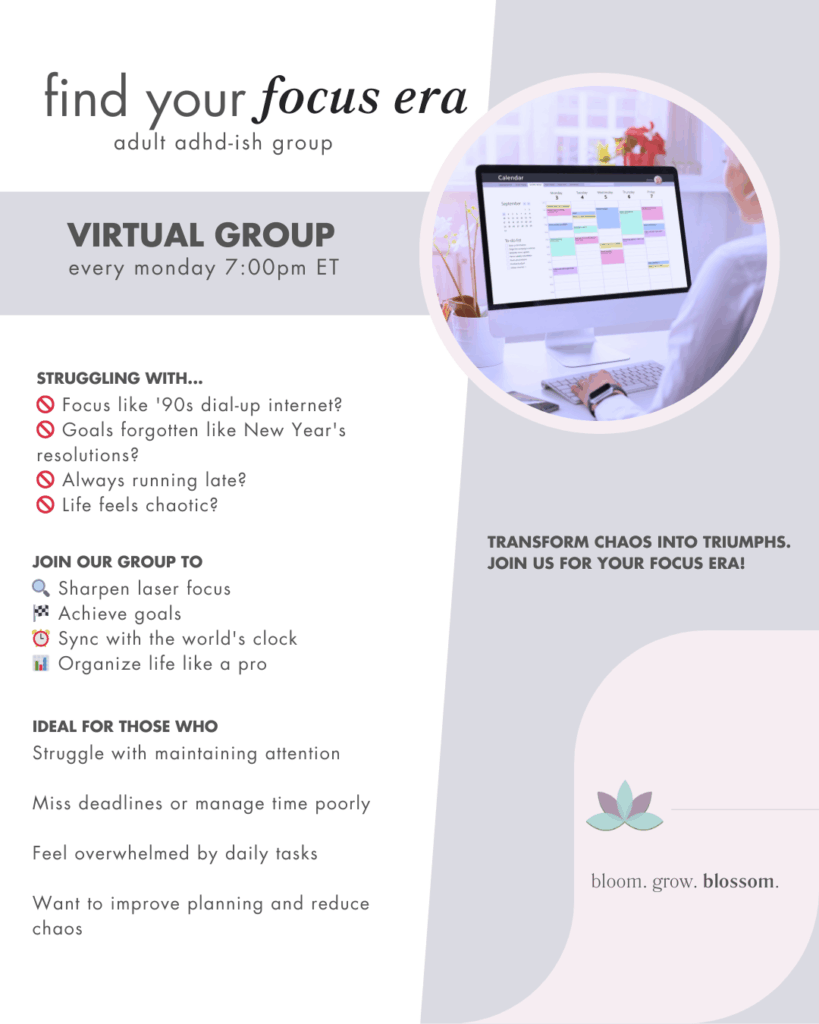
In the kaleidoscope of daily life, anxiety has a way of disguising itself, blending into the backdrop of our routine behaviors and thoughts. Often, we write off these signs as just quirks of our personalities or blame them on being overly tired, a little stressed, or just “off” for no apparent reason. But, what if I told you that some of these mundane moments could actually be your brain’s way of waving a little flag, signaling the presence of anxiety?
First off, let’s talk about procrastination. Yes, that universal experience of putting off tasks until the last minute might not just be laziness or poor time management. Anxiety can be a master of disguise, making even the simplest tasks feel insurmountable, leading us to procrastinate. It’s like our brain’s way of saying, “Hey, this feels overwhelming right now, so let’s just avoid it altogether, okay?”
Ever find yourself lying in bed, staring at the ceiling, and suddenly you’re planning a hypothetical conversation in your head that escalates to a full-blown argument with someone? This isn’t just a random thought exercise; it’s your anxiety prepping for conflict that isn’t even on the horizon. It’s like your brain is trying to protect you from potential threats, but instead, it’s just throwing you into unnecessary battle simulations.
And then, there’s the physical stuff that sneaks up on you. Ever noticed how your leg just won’t stop bouncing when you’re sitting down, or you find yourself fiddling with anything within arm’s reach? This restlessness is anxiety’s way of physically manifesting itself, keeping your body in a state of readiness to flee from danger. Except, the only danger is the anxiety itself, making you feel like you need to be constantly on the move.
Social media, oh, social media – the modern world’s double-edged sword. Ever caught yourself scrolling endlessly, feeling a bit more inadequate with each post you see? While it’s easy to blame this on the nature of social media, what’s really happening is that anxiety is using this tool to highlight your fears of missing out or not measuring up. It’s like a magnifying glass on all the things you worry about in your social and personal life.
Lastly, let’s not overlook the chameleon-like nature of irritability. You might think you’re just having a bad day or that everyone is suddenly more annoying, but anxiety could be the puppet master here. It heightens your sensitivity to everything around you, making you more prone to snap or feel overwhelmed by interactions that you’d typically handle with grace.
So, why is it important to recognize these covert operations of anxiety in our lives? Because understanding is the first step to addressing them. Once we see these behaviors not as personal failings but as signs of something deeper, we can start to approach ourselves with more kindness and seek strategies to manage our anxiety more effectively. It’s about acknowledging that sometimes, the battle isn’t against the tasks at hand or the people around us, but rather, with the anxiety that colors our perception of the world.
In navigating through the waters of mental health, it’s crucial to remember that you’re not alone, and what you’re experiencing is not only valid but manageable with the right support and strategies. Recognizing the subtle signs of anxiety is akin to finding a map – it doesn’t immediately solve the problem, but it does show you where to start digging.
|
|




